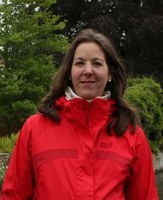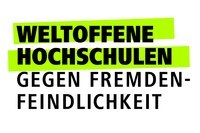| Telefon: | +49 261 2872225 |
| E-Mail: | meikekoester(at)uni-koblenz.de |

Dr. Meike Koester
Projekte
Publikationen
Koester, M., Frenzel, C., Becker, G. & Sahm, R. (2022) Food spectrum of the Chinese mitten crab (Eriocheir sinensis): insights from the Lower River Rhine comparing stable isotope mixing models and genetic gut content analyses. Aquatic Invasions, 17, 560-576
Gergs, R., Gemmer, I., Koester, M., Rothhaupt, K.-O. & Behrmann-Godel, J. (2018) No evidence for a genetic impoverishment of the indigenous amphipod Gammarus roeselii (Gervais, 1835) due to the invasion of Dikerogammarus villosus (Sowinsky, 1894) in Lake Constance. Hydrobiologia, 829, 189-204
Koester, M., Schneider, M., Hellmann, C., Becker, J., Winkelmann, C. & Gergs, R. (2018) Is the invasive amphipod Dikerogammarus villosus the main factor structuring the benthic community across different types of water bodies in the River Rhine system? Limnologica, 71, 44-50
Koester, M. & Gergs, R. (2017) Laboratory Protocol for Genetic Gut Content Analyses of Aquatic Macroinvertebrates Using Group-specific rDNA Primers. Journal of visualized experiments, 128, e56132.
Koester, M., Bayer, B. & Gergs, R. (2015) Is Dikerogammarus villosus (Crustacea, Gammaridae) a ‘killer shrimp’ in the River Rhine system? Hydrobiologia, 768, 299-313
Martin, P., M. Koester, L. Schynawa and R. Gergs (2015). First detection of prey DNA in Hygrobates fluviatilis (Hydrachnidia, Acari): a new approach for determining predator–prey relationships in water mites. Experimental and Applied Acarology, 67, 373-380.
Gergs, R., Koester, M., Grabow, K., Schöll, F., Thielsch, A. & Martens, A. (2015) Theodoxus fluviatilis' re-establishment in the River Rhine: a native relict or a cryptic invader? Conservation Genetics, 16, 247-251.
Gergs, R., Koester, M., Schulz, R.S. & Schulz, R. (2014) Potential alteration of cross-ecosystem resource subsidies by an invasive aquatic macroinvertebrate: implications for the terrestrial food web. Freshwater Biology, 59, 2645-2655.
Koester, M. & Gergs, R. (2014) No evidence for intraguild predation of Dikerogammarus villosus (Sowinsky, 1894) at an invasion front in the Untere Lorze, Switzerland. Aquatic Invasions, 9, 489-497.
Koester, M., Claßen, S. & Gergs, R. (2013) Establishment of group-specific PCR primers for the identification of freshwater macroinvertebrates. Conservation Genetics Resources, 5, 1091-1093.
Internationale Tagungsbeiträge
Koester, M., Winkelmann, C., Kratina, P., Becker, J., Grey, J., Worischka, S. & Hellmann, C. (2018) The invasive aquatic Dikerogammarus villosus - a dangerous killer or an opportunistic omnivore? (Poster) 11th International Conference on Applications of Stable Isotope Techniques to Ecological Studies (IsoEcol2018), Viña del Mar, Chile
Koester, M., Bayer, B. & Gergs, R. (2016). Is the aquatic Dikerogammarus villosus a 'killer shrimp' in the field? – A case study on one of the most invasive species in Europe (Vortrag) 19th International Conference on Aquatic Invasive Species (ICAIS), Winnipeg, MB Canada
Koester, M., Gergs, R. & Becker, G. (2016). Food spectrum of the Chinese mitten crab (Eriocheir sinensis) in the Lower Rhine: New insights comparing stable isotope mixing models with genetic gut content analyses (Poster) 10th International Conference on Applications of Stable Isotope Techniques to Ecological Studies (ISOECOL2016), Tokio, Japan
Koester, M. & Gergs, R. (2014) Is the aquatic Dikerogammarus villosus a 'killer shrimp' in the field? - a case study on one of the most invasive species in Europe (Vortrag) 9th International Conference on Applications of Stable Isotope Techniques to Ecological Studies (ISOECOL2014), Perth, Australien
Gergs, R., Koester, M., Schulz, R.S. & Schulz, R. (2013). Cross-system trophic effects: Does the invasive aquatic Dikerogammarus villosus affect terrestrial food webs? (Vortrag) BioHydrology 2013, Landau
Eingeladene Vorträge
Koester, M. (2016). Einfluss des invasiven Amphipoden Dikerogammarus villosus auf trophische Interaktionen im Freiland. Nachwuchspreis der Deutschen Gesellschaft für Limnologie (DGL2016). Wien, Östereich
JoVE-Video
Curriculum vitae
seit 01/2024: wissenschaftliche Mitarbeiterin an der Universität Kassel, Fachgebiet Gewässerökologie in der Landschaftsplanung, Projektkoordinatorin "Bachmuschelschutz und Zucht Rheinland-Pfalz"
seit 05/2022: wissenschaftliche Mitarbeiterin an der Universität Koblenz, Institut für Integrierte Naturwissenschaften, Projektleiterin "Forschungskooperation Bachmuschelschutz" und seit 11/2023 "Bachmuschelschutz und Zucht Rheinland-Pfalz" (50%)
01/2021 – 12/2023: wissenschaftliche Mitarbeiterin an der Technischen Universität München in der Arbeitsgruppe Molekulare Zoologie, Lehrstuhl für Zoologie (50 %)
02/2020 – 04/2023: wissenschaftliche Mitarbeiterin an der Universität Koblenz-Landau, Institut für Integrierte Naturwissenschaften, Projektkoordinatorin "INTASAQUA" (50 %)
11/2017 – 05/2019: wissenschaftliche Mitarbeiterin an der Universität Koblenz-Landau, Institut für Integrierte Naturwissenschaften, Projekt "INTASAQUA"
01/2016 – 11/2017: wissenschaftliche Mitarbeiterin an der Universität Koblenz-Landau, Institut für Integrierte Naturwissenschaften, Projekt "Ökologische Wirkung von Spurenstoffen aus Kläranlagen"
02/2016 Abschluss der Promotion an der Universität Koblenz-Landau, Institut für Umweltwissenschaften; "Impact of the invasive amphipod Dikerogammarus villosus on trophic interactions under field conditions"
2015 Promotionsabschlussstipendiat an der Universität Koblenz-Landau, Institut für Umweltwissenschaften, AG Ecotoxicology & Environment, Team Fish and Freshwater Ecology
2012 – 2014 wissenschaftliche Mitarbeiterin an der Universität Koblenz-Landau, Institut für Umweltwissenschaften, AG Ecotoxicology & Environment, Team Community Limnology, DFG-Projekt "Trophic interactions between native and invasive amphipod species in aquatic systems"
2006 – 2011 Studium Diplom-Umweltwissenschaften an der Universität Koblenz-Landau, Campus Landau, Hauptfach Angewandte Ökologie; Diplomarbeit: "Development of group-specific primers for genetic gut content analyses"
2003 – 2006 Studium Diplom-Biologie an der Technischen Universität Kaiserslautern





